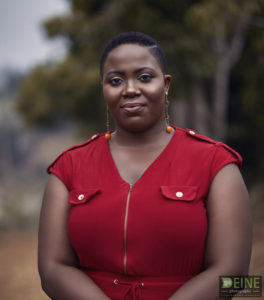For as long as I can recall, I’ve been forced to dispel stereotypes attached to my feminism. Just as Chimamanda recounts dispelling stereotypes in her renowned TED Talk, I often find myself saying ‘yes I’m feminist. Yes, I also like fashion. Yes, I also read romance novels. No, I am not an ‘angry feminist’.
For those who have familiarized themselves with feminist thought (particularly in the writings of Audre Lorde), anger can be understood as an appropriate reaction and a useful tool for social change. Very different from hate.
Yet, between those who would like nothing but to undermine the idea of feminism by bastardizing its concepts and capitalist media’s butchering of feminist thought for commodification, one has a lot of stereotypes to dispel. Too often we are put in the position of defining what we are by rejecting what we are not. And each time I have been put in that position, I have felt that in refuting certain caricature ideas of what feminism is, I would be educating people who could then see that it is something they too should identify as, something they should stand for.
Yet, recently I’ve had a slight change of heart on this matter. As the Anglophone crisis in my country has progressed, I have observed Anglophones (rightfully upset at the state of affairs, the government’s abuses, and the minimal support/understanding from the rest of the country) forced to refute stereotypes attached to their stance. Just as I have to with feminism. Those who identify as Anglophone now have to place conjunctions after asserting their stance, like saying:
Yes, I’m Anglophone, no I don’t support the attack on the francophones posted in our regions for work.
Or
Yes, I believe there is an anglophone problem and we need change; no that doesn’t make me an ‘Amba Boy’ nor does it mean I support keeping children from going to school.
To not add that ‘but’ or ‘also’ is to allow for someone with prejudice (whether outsider or not) to foist the stereotypes on you. And just as I would shun the ‘Angry Feminist’ label, so too, I have observed many try to shun the ‘violent/irrational Anglophone label’.
 This observation has made me question why? Why do we, who are standing up for something right, have to ensure that we are not wrongly perceived. Why is the onus on us to dispel stereotypes people wouldn’t have in the first place if they cared enough to educate themselves and examined their own selves and dispelled their own biases? Yes, as I mention above, I feel the need to explain so to correct the false perceptions but if I’m completely honest, I also have a vested interest. I do not want to be seen as ‘the angry feminist’ for the same reason the average Anglophone doesn’t want to be seen as a ‘violent Anglophone’, because it is not a good look.
This observation has made me question why? Why do we, who are standing up for something right, have to ensure that we are not wrongly perceived. Why is the onus on us to dispel stereotypes people wouldn’t have in the first place if they cared enough to educate themselves and examined their own selves and dispelled their own biases? Yes, as I mention above, I feel the need to explain so to correct the false perceptions but if I’m completely honest, I also have a vested interest. I do not want to be seen as ‘the angry feminist’ for the same reason the average Anglophone doesn’t want to be seen as a ‘violent Anglophone’, because it is not a good look.
We want to be liked, we want to be seen as ‘good’ and even if we are not seen as ‘good’ we want the fact that we are ‘bad’ to be understood as a reaction to something else far worse- gender inequality, socio-political oppression, etc. So we explain, and use ‘but’ and ‘also’. Unfortunately, in explaining, and exempting ourselves, we enable those who would undermine the movements (be the feminist movement or the movement against Anglophone marginalization) to further dismiss those who we have exempted ourselves from- the angry, the violent. By saying ‘I am not like those ones…’ we inadvertently say ‘Feel free to rant but exempt me’.
But this isn’t what we want nor need. What is needed is understanding and empathy. My not being an ‘a violent Anglophone’ doesn’t mean I cannot understand/empathize with those who are. Similarly, I should not fear being identified as an ‘Angry feminist’ so much I lose the opportunity to explain that the anger – even if I don’t have it- is understandable, even to be expected.
My not being angry or violent does not negate the right of those feelings/actions in other people.
If I do not walk around in a bundle of angry energy it is because I am lacking in consistency and strength needed to keep that up. It is not because I lack the reason to be angry/violent. Everyday sexism, like every additional wrong move made in reaction to the Anglophone crisis, lends credence to the anger and violence of feminists and Anglophone separatists. The absence of my anger, therefore, is a boon that should be appreciated, angry is what we should be in the face of injustices and oppression.
So here is an ode to the ‘angry feminists’:
You are seen, understood,
Your anger is valid.
And even though I will not always feel with your fervor,
The fervor is appreciated. Thank you
 Monique Kwachou is a Cameroonian, an avid reader, struggling writer, self-motivated youth worker and budding academic of gender and education for development. She blogs at moniquemusings.blogspot.com and is a postgraduate student at the University of the Free State, South Africa.
Monique Kwachou is a Cameroonian, an avid reader, struggling writer, self-motivated youth worker and budding academic of gender and education for development. She blogs at moniquemusings.blogspot.com and is a postgraduate student at the University of the Free State, South Africa.

Straight to the point Monique. I feel good I was your lecturer at undergraduate. Keep soaring!!
love this. Love from Kampala-Uganda